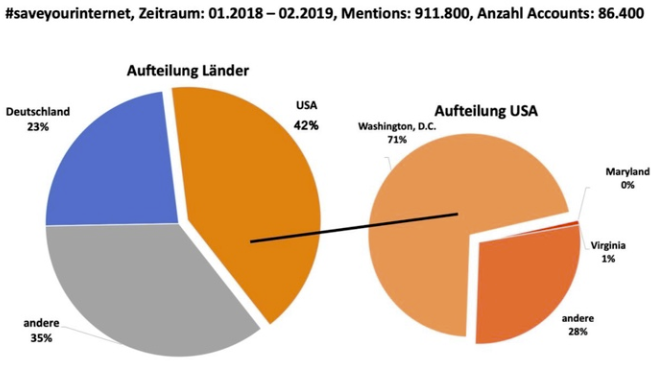Russia Holds Talks to Enshrine Landmark Anti-Piracy Agreement into Law
vendredi 8 mars 2019 à 18:33
Dealing with the flood of infringing content placed on the Internet for public consumption is a key aim of rightsholders around the world.
In both the United States and Europe, this is largely tackled via a notice-and-takedown regime, whereby copyright holders file complaints and hosts, search engines, and other platforms respond by removing content.
Under huge pressure from rightsholders, last year a ground-breaking agreement was reached in Moscow, one that would see much tougher measures to deal with the problem in Russia.
The voluntary agreement – signed by major rightsholders, Internet platforms, and search providers – aims to create an ever-growing centralized database of infringing content to enable web companies to take down media and links both quickly and efficiently.
Signatories who host and index content are expected to query the database regularly for designated content and links while deleting the same from their sites within hours.
It isn’t yet clear how complete the database is, or which companies are already interfacing with it, but it’s understood that the participants are now conducting takedowns broadly in line with the agreement.
The memorandum is valid until September 1, 2019 but the plan from the beginning was to make the arrangement a legal obligation by writing its terms into law. Plans for that are now underway.
Russian telecoms watchdog Roscomnadzor reports that an “extended meeting” was held on March 6 with rights holders, search engines, and video hosting site operators in attendance. Also present was Roscomnadzor deputy head, Vadim Subbotin.
“The meeting discussed the most optimal version of the concept for the bill. Thus, the basis for the new legislation will be the provisions of the Memorandum of Cooperation in the field of protection of exclusive rights in the era of the development of digital technologies,” Roscomnadzor’s press office confirmed.
The plan is for the terms of the currently voluntary memorandum to be written into law before it expires on September 1, 2019. However, if an agreement cannot be reached before the anniversary of its signing, it’s suggested that the memorandum could be extended beyond its initial one-year term.
Channel One, the National Media Group, Gazprom-Media, the Internet Video Association, the Association of Film and Television Producers, Yandex, Rambler Group, Mail.Ru Group, vKontakte, and RuTube, are all signatories of the current memorandum.
“The memorandum lays the foundations for sectoral self-regulation within the framework of the execution of the ‘anti-piracy’ law. The document introduces a pre-trial procedure for resolving disputes between copyright holders and search engines regarding the illegal placement of links to pirated content,” Roscomnadzor re-emphasized this week.
Google did not sign up last year and there has been no clear indication that it intends to participate moving forward. However, there have been multiple suggestions that other companies and groups may be allowed to join the voluntary agreement, such as publishers, for example.
Should the memorandum be written into law as planned, it’s likely to be the toughest – if not the toughest – anti-piracy regime seen anywhere in the world. Add Russia’s site-blocking regime into the mix, and the country is on course to become a world leader in online infringement mitigation.
Source: TF, for the latest info on copyright, file-sharing, torrent sites and more. We also have VPN reviews, discounts, offers and coupons.
 Later this month, Members of the European Parliament will cast their final vote on the EU Copyright Directive.
Later this month, Members of the European Parliament will cast their final vote on the EU Copyright Directive.



 Pirated copies of movies appear online every day in a variety of formats, such as CAM, DVDRip, WEBRip, and Web-DL.
Pirated copies of movies appear online every day in a variety of formats, such as CAM, DVDRip, WEBRip, and Web-DL.
